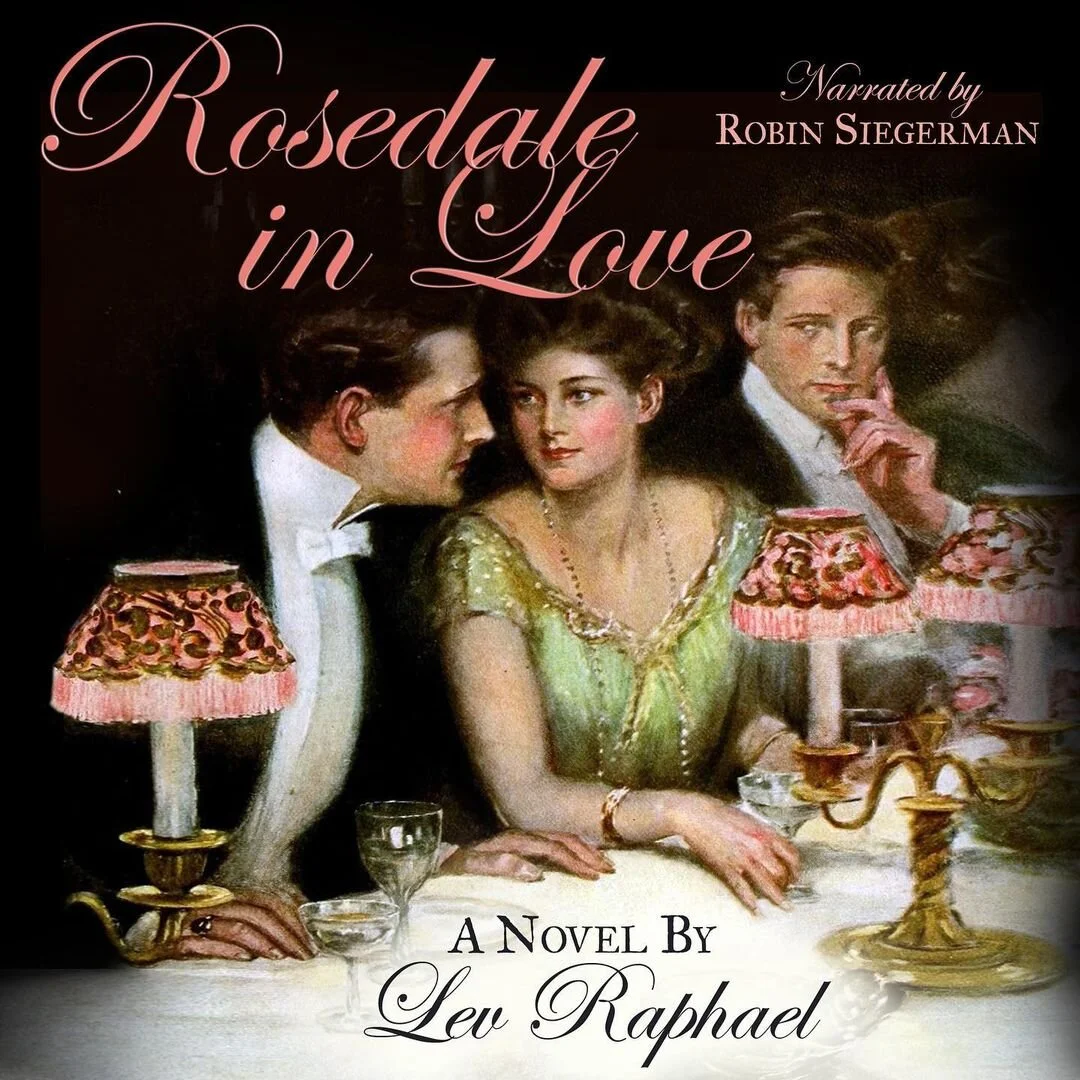Audiobook review: Rosedale in Love by Lev Raphael, narrated by Robin Siegerman
I’ve only recently started getting into audiobooks. I’m much more of a traditional reader (it took months to convince me to even consider buying an e-reader), I don’t own a car, and when I’m out and about I prefer to listen to podcasts or music. I always assumed that listening to an audiobook would be similar to listening to a boring professor in school - in one ear and out the other. Oh, how wrong I was!
A few summers ago I began my journey to loving audiobooks as I laid in one of the many Paris parks that I’m known to haunt in warmer months. I think the first one I listened to all the way through was Gone Girl by Gillian Flynn. It’s a very riveting story in general, so I’m glad I started with the thriller novel. Laying there, in the grass, under a blue sky while listening to a narrator read to me - I was kicking myself. Why had I waited so long to try this out?
Now, I won’t say that I listen to more audiobooks than I read, but I have started adding a few here and there to my to-be-read (listened) stack. And, as summer quickly approaches, I can’t wait to start spending my afternoons in the park with something interesting in my ear.
I will say that in addition to an interesting storyline, the narrator of an audiobook can make or break it for me. Most standard-length books feature up to 12 hours of audio, so if you don’t like the sound of the voice that’s reading to you, chances are you won’t finish listening. I’m also a fan of narrators with the ability to change their voices as they read different characters. There’s something a little theatrical about it, and I’m here for it.
Robin Siegerman is a voice actor and audiobook narrator. She has exactly what I’m looking for when I’m listening to a book: passion, the capacity to change her voice, and, as her website says, a dash of moxie that I couldn’t get enough of as I listened to her narrate the novel Rosedale in Love by Lev Raphael.
What, a book, written by a man, here, on the Mistress of Books?! Bear with me while I tell you why.
Rosedale in Love is based on Edith Wharton’s The House of Mirth. Wharton’s novel is told from the point of view of a fading socialite named Lily Bart: a woman who was essentially raised to attract a wealthy husband to take care of her. As Lily’s 29th birthday approaches, her marriage prospects become fewer and far between. To make matters worse, Lily wants to marry for love, a foreign concept to much of the upper-class set in 19th century New York City.
in The House of Mirth, we first meet Simon Rosedale through the eyes of Lily as she finds herself in a conspicuous situation with one of her bachelor friends. She was spotted leaving the apartments of said bachelor friend, something that was considered scandalous at the time. Rosedale spots her, approaches her, and even asks her what she’s doing, leaving her embarrassed. Rosedale remains an important character in the Wharton novel, and I won’t spoil anything in case you’d like to read it. But, while Rosedale is a main figure, readers can’t help but take note of Wharton’s anti-Semitic treatment of him.
Which brings me to Rosedale in Love. Author Lev Raphael, Jewish himself, had always loved Wharton’s The House of Mirth, but the treatment of Rosedale didn’t sit with him right (which he explains in the introduction). And so he decided to write a redemption story for Rosedale, aptly called Rosedale in Love, as it follows Rosedale’s infatuation with Lily Bart.
There are some new characters introduced as well, such as my favorite, Rosedale’s cousin Florence. A fierce and independent woman, she is the most feminist character in the book. Florence left her family’s home in the early 20th century as a single woman and claimed her agency, something that was unheard of for her set. She sets up camp in the Waldorf-Astoria Hotel, and chooses to smoke, dine on her own, and decorate her rooms just the way she likes it.
One of my favorite scenes occurs when Florence’s strict German mother comes to visit her at the hotel. She looks around with disgust and demands Florence when she is going to stop playing around and come back home? Florence essentially laughs in her mother’s face, and it was such a strong moment for her character. The only thing that frustrated me about Florence in the story is that she rarely showed that strength to anyone else - especially to Rosedale. To understand what I mean you’ll have to pick up this audiobook yourselves.

